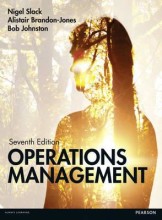Language Classrooms - Culture and language learning and teaching (Does learning a language mean learning a culture?) - Moving towards a critical understanding of the notion of culture in global cultural flows
8 important questions on Language Classrooms - Culture and language learning and teaching (Does learning a language mean learning a culture?) - Moving towards a critical understanding of the notion of culture in global cultural flows
What was Atkinson's view (1999)?
What was Atkinson's (1999) second practice?
What was Atkinson's (1999) third practice?
- Higher grades + faster learning
- Never study anything twice
- 100% sure, 100% understanding
Which approach to culture did Atkinson call for?
What was Risager's (2006, 2007) view?
What is an implication of this argument on language and cultural pedagogy?
What did Pennycook (2007) examine?
What did Baker (2009) challenge?
The question on the page originate from the summary of the following study material:
- A unique study and practice tool
- Never study anything twice again
- Get the grades you hope for
- 100% sure, 100% understanding
































